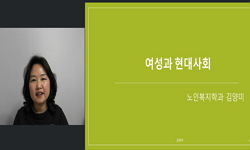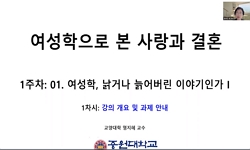In recent years, hate speech against Koreans living in Japan has become one of the most serious human rights issues in Japan, especially those targeting women, which have been revealed through lawsuits filed by the parties concerned. This paper aims t...
http://chineseinput.net/에서 pinyin(병음)방식으로 중국어를 변환할 수 있습니다.
변환된 중국어를 복사하여 사용하시면 됩니다.
- 中文 을 입력하시려면 zhongwen을 입력하시고 space를누르시면됩니다.
- 北京 을 입력하시려면 beijing을 입력하시고 space를 누르시면 됩니다.

재일조선인 여성의 교차성과 反혐오의 정동 = Intersectionality and The Affect of Countering Hate Speech-Focusing on the Case of Zainichi Korean Women-
한글로보기https://www.riss.kr/link?id=A109131825
- 저자
- 발행기관
- 학술지명
- 권호사항
-
발행연도
2024
-
작성언어
-
-
주제어
재일조선인 ; Zainichi Korean ; 여성 ; Women ; 혐오 ; Hate Speech ; 교차성 ; Intersectionality ; 정동 ; Affect ; 이신혜 ; Lee Shinhye ; 돌봄적 관계 ; caring relationship
-
KDC
300
-
등재정보
KCI등재
-
자료형태
학술저널
- 발행기관 URL
-
수록면
167-197(31쪽)
- DOI식별코드
- 제공처
-
0
상세조회 -
0
다운로드
부가정보
다국어 초록 (Multilingual Abstract)
In recent years, hate speech against Koreans living in Japan has become one of the most serious human rights issues in Japan, especially those targeting women, which have been revealed through lawsuits filed by the parties concerned. This paper aims to actively reconstruct the intersectional subjectivity of minority women through an examination of the affect of countering hate speech by Zainichi Korean women. First, it traces the background of the concept of multiple discrimination or intersectionality concerning minority women was raised in post-Cold War era, and then examines how Zainichi Korean women reinterpret their own difficulties intersectionally. The paper also critically examines the power of hate on the body, as well as the affect of countering hate speech, through the court record of Lee Shin Hye, a writer who has conducted an anti-hate speech trial. Particular attention is paid to Lee’s clothing performances and caring relationship with her neighbours to capture the potential of the affect that the ‘wounded body’ to be restored.
동일학술지(권/호) 다른 논문
-
재일조선인 간첩과 반공법-5·16 쿠데타집단의 반공프레임 확장과 재구축-
- 한일민족문제학회
- 윤정원 ( Yun Jeong-weon )
- 2024
- KCI등재
-
해방 후 해외 한국학교 형성과정-1946∼1949년 니시나리조선인소학교를 중심으로-
- 한일민족문제학회
- 박성기 ( Park Sseong-kee )
- 2024
- KCI등재
-
1900~10년대 대구지역 ‘위생’ 문제와 유력자들의 대응
- 한일민족문제학회
- 주지훈 ( Joo Ji-hun )
- 2024
- KCI등재
-
- 한일민족문제학회
- 정성희 ( Chung Sung-hee )
- 2024
- KCI등재




 KCI
KCI 스콜라
스콜라






